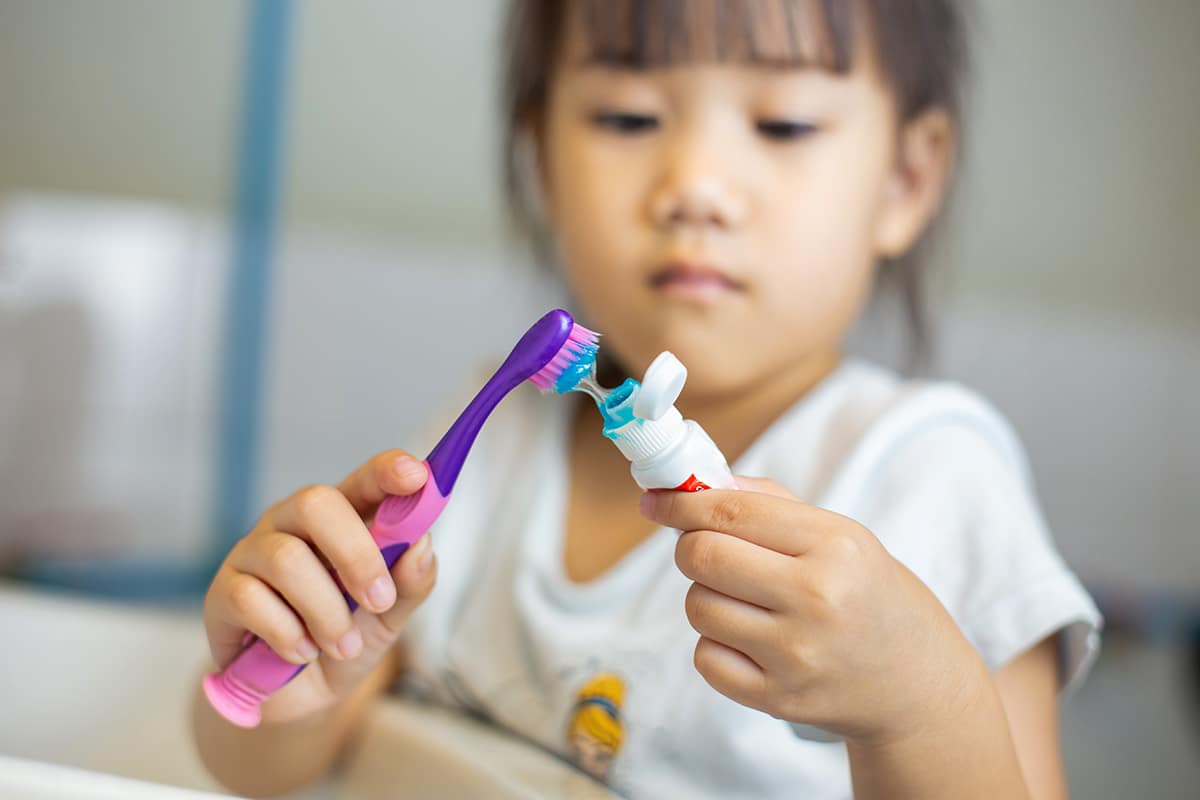Toothbrushing: The gold standard for good oral health and a life skill that should be taught early.
Brushing helps to remove plaque, which can cause tooth decay if not removed.
Parents often have questions about when to start brushing their child’s teeth, what kind of toothpaste to use, and how to get their child to want to brush. Here at Rother Dental, we can offer several tips to help you & your child create healthy brushing habits.
Here are some basic brushing tips for young children:
WHEN SHOULD I START BRUSHING MY CHILD’S TEETH?
As soon as teeth appear, parents should start brushing them. As they are just beginning to erupt, you may gently wipe with a damp cloth or brush with a small & soft toothbrush. But as teeth erupt more fully, parents should switch to the toothbrush for daily brushing.
Brushing all surfaces of your child’s teeth twice a day is the best way to not only prevent decay, but also encourage your child to get used to good oral care habits.
WHAT KIND OF TOOTHPASTE SHOULD MY CHILD USE?
Fluoride Toothpaste is Recommended!
Prior to 2014, the American Academy of Pediatrics recommended that parents should avoid fluoride toothpaste until age 2. But the current recommendation is to start brushing your child’s teeth with a very small amount of fluoride toothpaste as soon as teeth start to erupt.
The amount of toothpaste is the most important factor for young toddlers under age 2 because you do not want your child to swallow fluoride toothpaste. Use a small smear of paste that is about the size of a grain of rice on the toothbrush until your child has the ability to spit after brushing, which is typically around age 3.
When choosing a toothpaste brand, consider a brand with a child-friendly flavor. The American Dental Association offers parents a list of children’s toothpastes and other dental hygiene products that have the ADA Seal of Acceptance.
SHOULD I HELP MY CHILD BRUSH?
Yes!
Most dental professionals recommend helping your child brush until at least age six. During those first six years, you and your child can both take turns brushing with your finishing the job. As your child gets older, you can allow them to start brushing longer during those co-brushing times.
Developing healthy brushing habits means not only teaching your child how to brush, but also to encourage brushing twice a day for two minutes.
HOW CAN I GET MY CHILD TO WANT TO BRUSH?
Getting your child to want to brush can be challenging. Here are some easy tips to make brushing fun:
- Go shopping for a toothbrush together: Take your child shopping for a toothbrush that has a fun character design or is their favorite color.
- Create two minutes of fun: Because two minutes is a long time for a child, find creative ways to make the time go fast such as setting the time to music or a video. You can even read them a book while they brush.
- Reward good brushing habits: Some parents find creating charts with stickers to be a fun reward for children. But some children may just want parents to praise them after brushing or just offer a high-five to tell them that they did a great job.
- Make brushing a family routine: Children learn by watching parents. So, let your child watch your brush or brush your teeth together.
The American Dental Associate offers a helpful video full of tips for parents to get their kids to brush
Helping your child to create healthy brushing habits early is the key to a lifetime of good oral health!
We’re here to help create great oral health habits with your children!
Starting your children out with the right dental care habits is critical in their development and overall health. Make sure to talk to our dentist in Mechanicsburg to learn when you should take your child to the dentist for their first visit and what best practices you can help your child with to ensure they’re taking care of their teeth properly.


